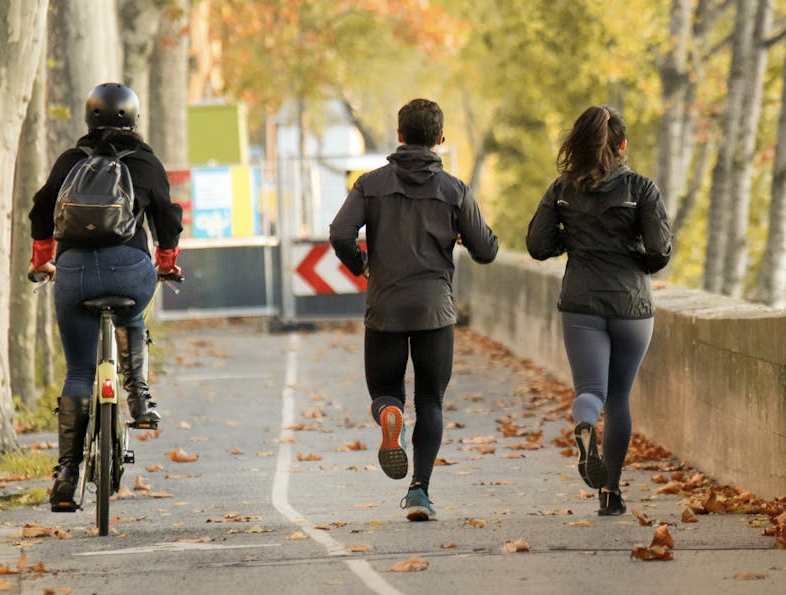Written by Jeremy Hawkins

Bikes & Buses
Throughout most of my education, my wife and I only had one car. We routinely found places to live that were either close enough to campus for me to ride my bike or that had easy access to public transportation so that she would not be without a car. As a result, I biked and bused a lot of miles.
They Could Have Used Some Pointers
I remember one bike ride in particular. I was working on my PhD and had to ride approximately 2.5 miles to campus. As I neared campus, I came upon an individual who was jogging in the bike lane in front of me. As an athletic trainer, when I see someone moving not quite right, I often try to figure out what is “wrong” with their movement pattern. (It’s kind of a subconscious habit that happens without me even thinking about it.) Such was the case on this day. I will spare you my assessment of this person’s running mechanics beyond saying they could have used some pointers on running efficiency. After I made the assessment in my head, I passed by the runner and went about my day, not thinking much more of it.
Fast forward a few months. I needed to head to campus on a Saturday and decided to jog there. At nearly the exact same spot where I had critiqued that runner’s mechanics a few months ago, and as I struggled to finish my 2.5-mile run, the thought came to mind, “You probably look worse than they did. You don’t know how far they have (had) come.” The last sentence, “You don’t know how far they have come,” has stuck with me ever since and has had quite an impact on my life. (And I think it is important to note that I called my wife and asked her to come and get me so I wouldn’t have to run back home!)
You Don’t Know How Far They’ve Come
We all face challenges that are unique to us. Challenges that those around us often are not aware of. I’ve heard it said that when you meet someone you should treat them as if they are in serious trouble and you will be right more than half the time.1
I knew nothing about the runner I encountered. Maybe this was their first run after taking 6 months to heal from an injury. Or perhaps they suffered from extreme anxiety and were proud of themselves for running at all. Regardless, they surely could have benefited more from an “atta-boy” instead of my silent critique. I know I could have when I found myself struggling in the same place. Instead of focusing on what I felt they were lacking, I should have instead praised them for what they had accomplished. This should be the case for anyone and everyone I come in contact with. Instead of finding things to critique, I should look for the good and focus on the positive. I should give them the benefit of the doubt and look at ‘how far they’ve come’.
How Far I’ve Come
This same concept can and should be something we apply to ourselves. When we face our own internal struggles, the struggles that no one sees, perhaps we must also consider how far we have come.2 We should focus more on our progress (and view it as a blessing) and less on our struggles, weaknesses, difficulties, and everything else that is ‘bothersome’ to us.
This is something I’m still learning to do. I’m definitely not perfect at it, but as I’ve tried to keep this frame of mind when considering my own circumstances, I’ve been blessed with the perspective I need to keep going. Perhaps the same will work for you. It doesn’t hurt to give it a try.





Love the “how far I’ ve came” and the reminder to look at the blessings that are all around us that can be overlooked.